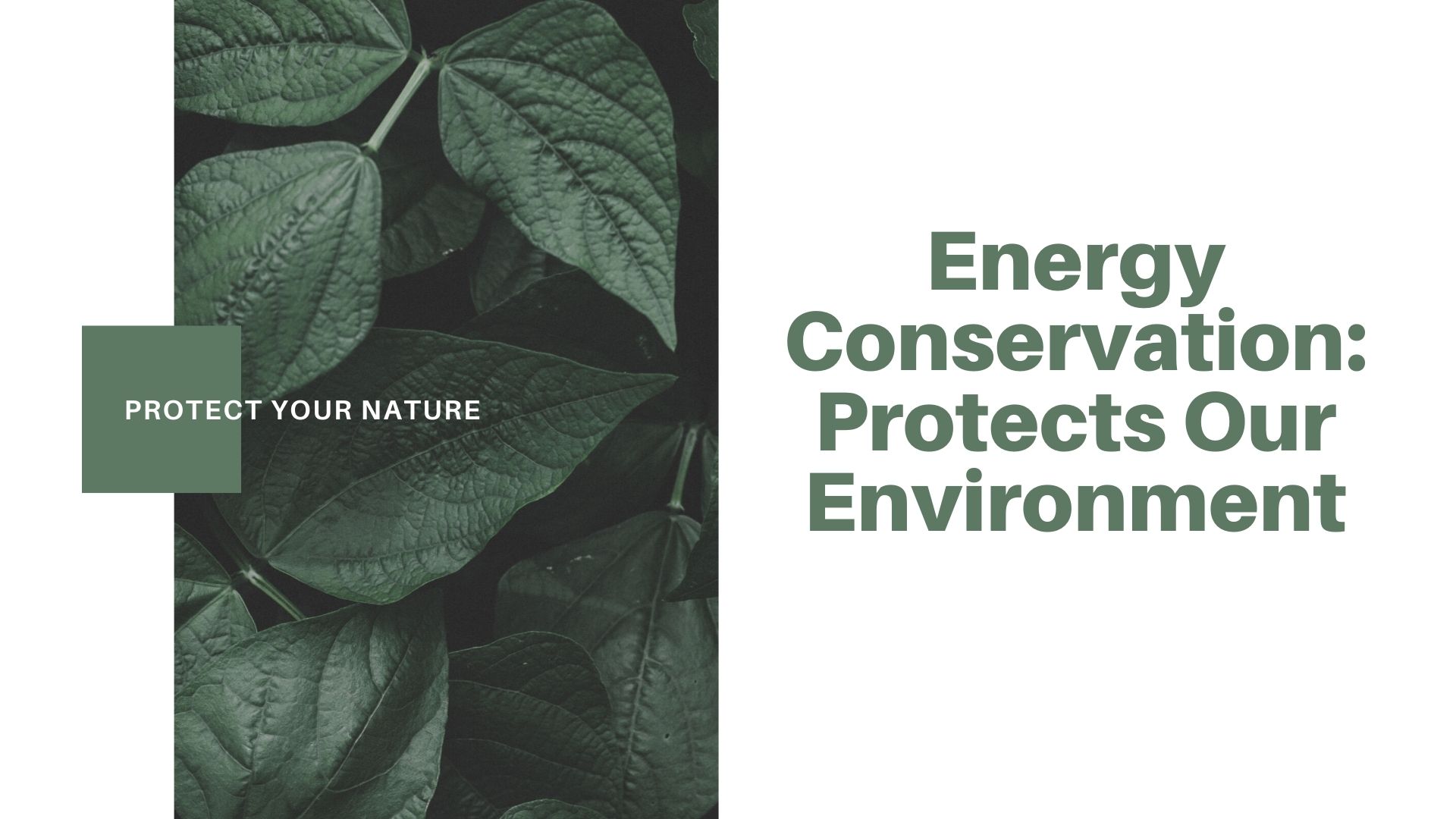
Conservation of energy is the desire to save resources by minimizing their use in our everyday lives. We have a finite supply of resources on earth and it takes a lot of time to regenerate, so to make it available to our future generations, it is important to conserve energy. There are two potential ways of conserving electricity, either we can use it wisely or we can decrease the amount of energy consumed regularly. Conservation of energy aims to improve the country’s financial resources, to make the atmosphere safer and healthy, to have national stability, and to conserve energy for future use. It also aims to minimize abnormal variations in atmospheric patterns and facilitates the use of renewable energy resources.Energy management is mainly related to knowledge creation. Because of global warming and ozone layer degradation, most citizens are not aware of the state of the earth. Nevertheless, with a tiny amount of awareness, a shift in the habits of people can be brought on. A change in their pattern can bring about a contrast in the universe. The conservation of energy is not only related to behavior and practice, but also to time.When there are no resources available to generate energy, people do not waste time dreaming about what could happen. It is completely essential to comprehend how important it is to turn off the engine of a car at the red light. Switching the car off does not only conserve energy but also reduces air pollution. We cannot bring fresh energy to the atmosphere by the law of energy conservation, nor can energy die out. We can, however, do whatever we can to conserve it for the future.
There are different ways and measures to save electricity, including riding a bicycle or resorting to walking instead of using vehicles or motorbikes, which in effect conserves fuel and decreases emissions, using energy-efficient lamps, drying clothes with natural sunshine instead of using drying washing machines, increasing green plants near the house to get cool air and decreasing the use of air conditioning and recycle electricity used for the manufacturing of related products, and there are numerous other tasks that can be undertaken to save energy. To preserve exhaustible conventional resources such as coal, natural gas, petroleum, etc., the new approach highlights greater dependency on non-exhaustible and non-conventional energy sources. That is why endeavors are being made to facilitate the production and usage of non-conventional energy sources. Another element of energy efficiency has to do with reducing energy usage.
We regularly hear appeals on energy efficiency, efficient use of existing resources going green, and saving the earth. Yeah, much of our natural resources are indeed depleting at an alarmingly accelerated pace to produce the requisite power for modern human existence. The need for an hour to conserve electricity for our future generations.
Organizations have begun to take certain kinds of moves in this direction. Instead of polythene bags, several stores also use cloth bags. To make cards, etc., recycled paper is used more frequently. For Holi, organic color is used. Natural materials are used to make idols. The question is, do these measures lead to the conservation of energy?
The good news is that in our daily lives, each one of us will do our part to make a major difference to the world. Here are a few healthy practices to conserve energy that we can immerse in our everyday routine:
• Use daylight whenever possible: During the day, we prefer to turn on lights in our houses. Please stop doing so.
• Use paper or cloth bags
• Say No to polythene
• Re-use paper
• Walk, whenever possible
• Use solar heater at home:
• Use LEDs: LED lights are 80% more proficient than other lights.
• Plant trees
In our lives, energy efficiency plays a vital role as this will finally make the world safe and pollution-free and help us lead a good and healthy life as well. It is necessary to make individuals aware of such strategies that will help them conserve resources. The key step in energy efficiency is to use renewable energy sources, such as solar energy, windmills, etc., to produce energy. The Sun is a renewable resource that is available in abundance, but the easiest way to save electricity is to install solar panels in the house and resort to practices that reduce energy usage.Unknowingly, we tend to exploit the opportunities open to us or over-use them. Little waste entails major losses. And little saving will result in tremendous benefits. So let us exercise discipline in our lives and give our future generations a better life.
Conserve energy… it is in your hand
If not now… when?
If not you. Who?
Save Energy… Save money… Save the planet….

Author: Sofia Khanam from Kolkata has completed her MPharm in Pharmacology from Calcutta Institute of Pharmaceutical Technology & Allied Health Sciences, Howrah, West Bengal. She has attended and presented oral and poster in many international and national conferences, webinars, and seminars. She has secured the first position in meaning with microbes’ competition which was conducted by microscopia IWM and secured second position in an essay writing in the national pharmacy week celebration 2020 of VIPER. She has been certified with more than 300 certificates in different fields like quizzes, seminars, webinars, conferences, courses, training, and extra curriculum activities. She has published 3 review papers and one chapter. She has done her research work on “Antifungal compound” and it is under process for publication. She has undergone industrial training for one week in “Stadmed Private Limited” and for 12 days in “Tropical Laboratory”. She has also attended 10 days of training on “Recombinant DNA Technology” from SHRM Biotechnologies. She is working as an active member of the unit of social and welfare activities. She is currently writing chapters and articles for different publications and preparing for CSIR NET Examination. Her main research area includes Biology, Microbiology, Cell culture, Biotechnology.


